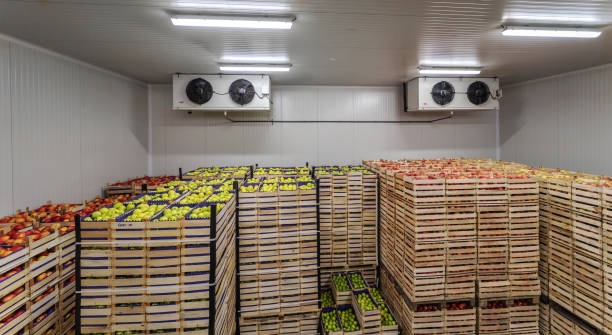Top Benefits of Using Cold Storage Services for Perishable Goods

INTRODUCTION
In today’s fast-paced world, there is an increased demand for fresh, high-quality perishable foods. Maintaining the integrity of farm-fresh produce and life-saving medications is critical. Cold storage facilities have become a vital component of the supply chain, ensuring that perishable items remain in top condition from point of origin to final customer. Let’s look at the top benefits of using cold storage services for perishable items.
1. Extended Shelf Life
One of the most basic benefits of cold storage is increased shelf life for perishable products. Cold storage facilities slow the natural degradation of fruits, vegetables, dairy goods, and meats by keeping the atmosphere controlled. This prolonged shelf life not only minimizes waste, but also enables businesses to better organize their inventories and satisfy consumer demand without sacrificing quality.
2. Maintain quality and freshness.
Cold storage services help perishable items maintain their freshness, flavor, and nutritional value. Temperature-controlled facilities are critical for maintaining the sensory and health benefits of food products. For example, fresh produce held at the proper temperature preserves its freshness and flavor, whereas dairy products remain safe and nutritious for consumption.
3. Safe Storage of Pharmaceuticals
Pharmaceutical items, such as vaccines, medications, and biopharmaceuticals, require precise temperature regulation to remain effective and safe. Cold storage facilities provide the proper conditions for storing these sensitive goods, preventing degradation and preserving their effectiveness until they reach patients. This is especially important for vaccines, which must be stored at precise temperatures to remain alive.
4. Reduced spoilage and waste.
Spoilage is a major worry when working with perishable items. Cold storage significantly minimizes the risk of deterioration by maintaining products at the proper temperature. This reduction in spoiling results in less waste, more effective resource utilization, and, ultimately, financial savings for enterprises. It also helps to promote sustainability by reducing the environmental effect of wasted food and resources.
- Industry
- Art
- Causes
- Crafts
- Dance
- Drinks
- Film
- Fitness
- Food
- Jogos
- Gardening
- Health
- Início
- Literature
- Music
- Networking
- Outro
- Party
- Religion
- Shopping
- Sports
- Theater
- Wellness
- News


